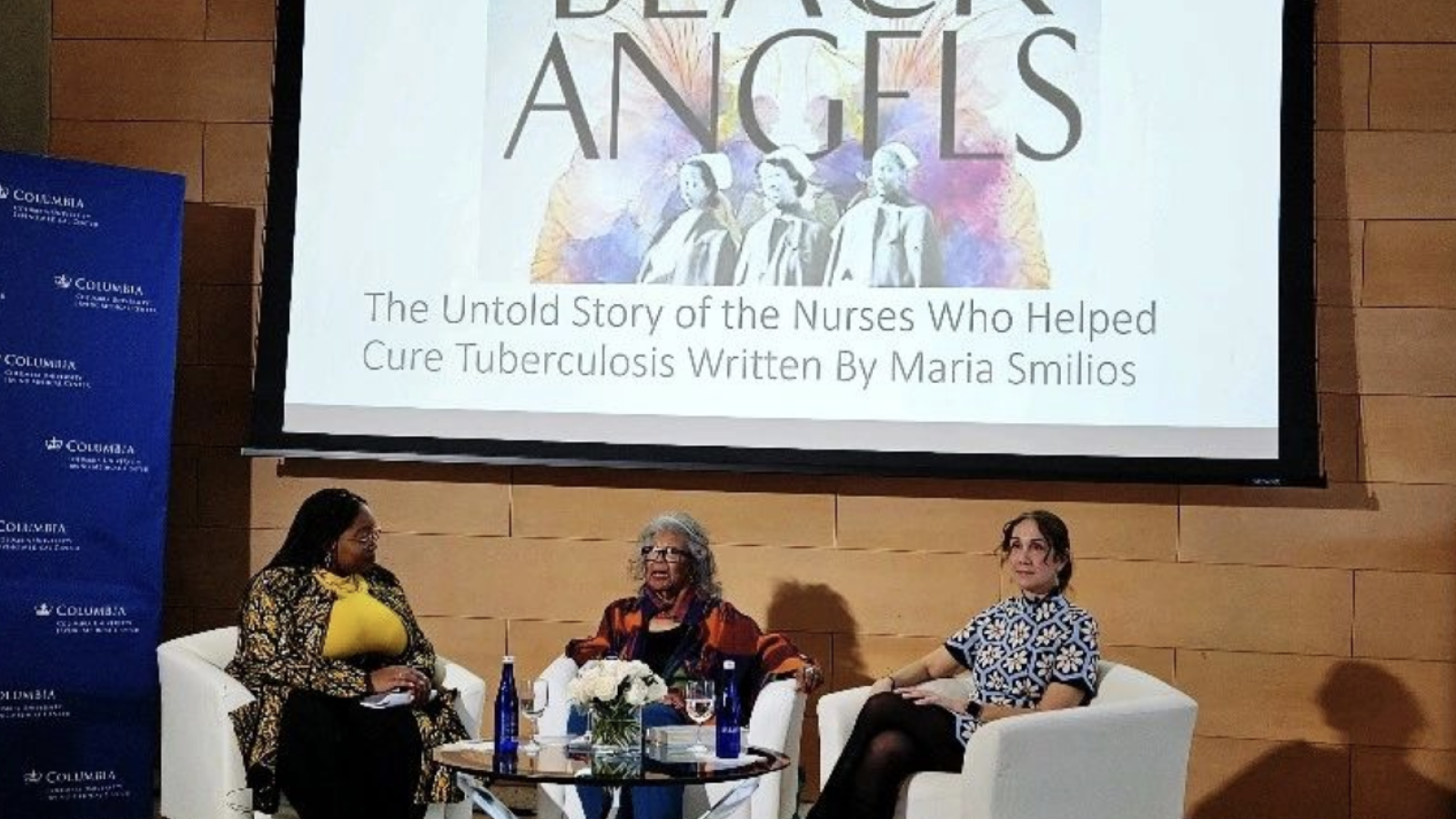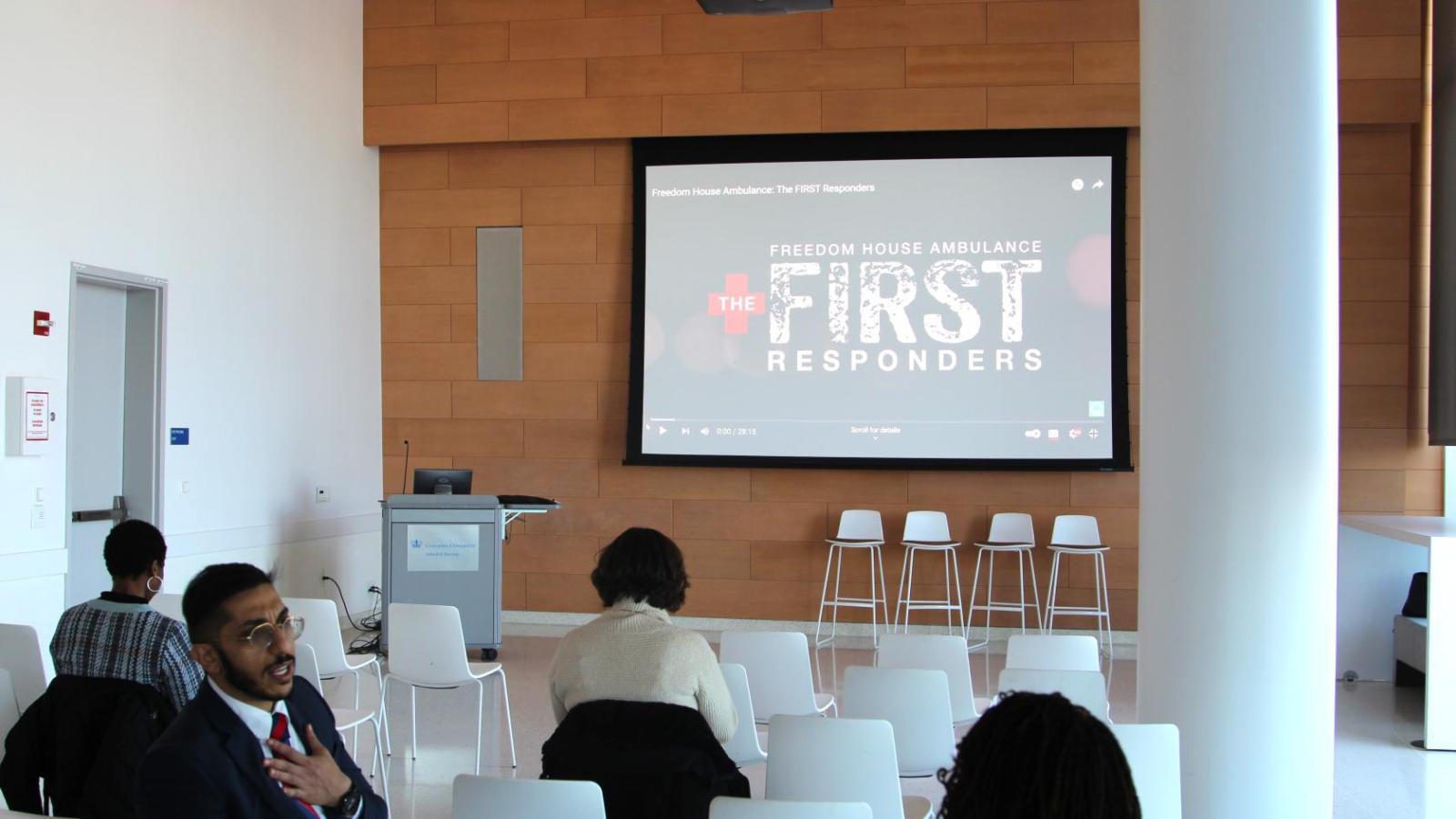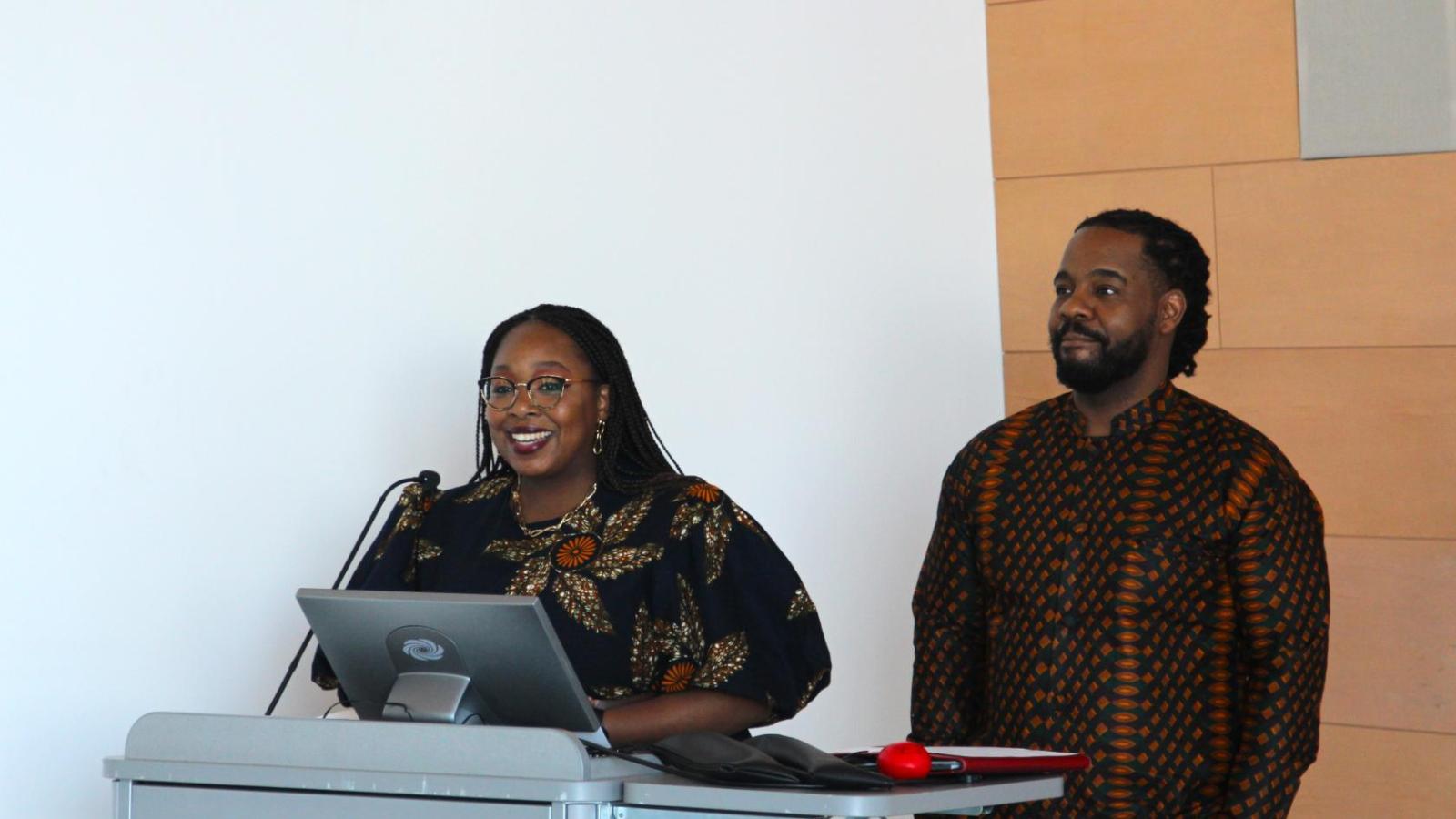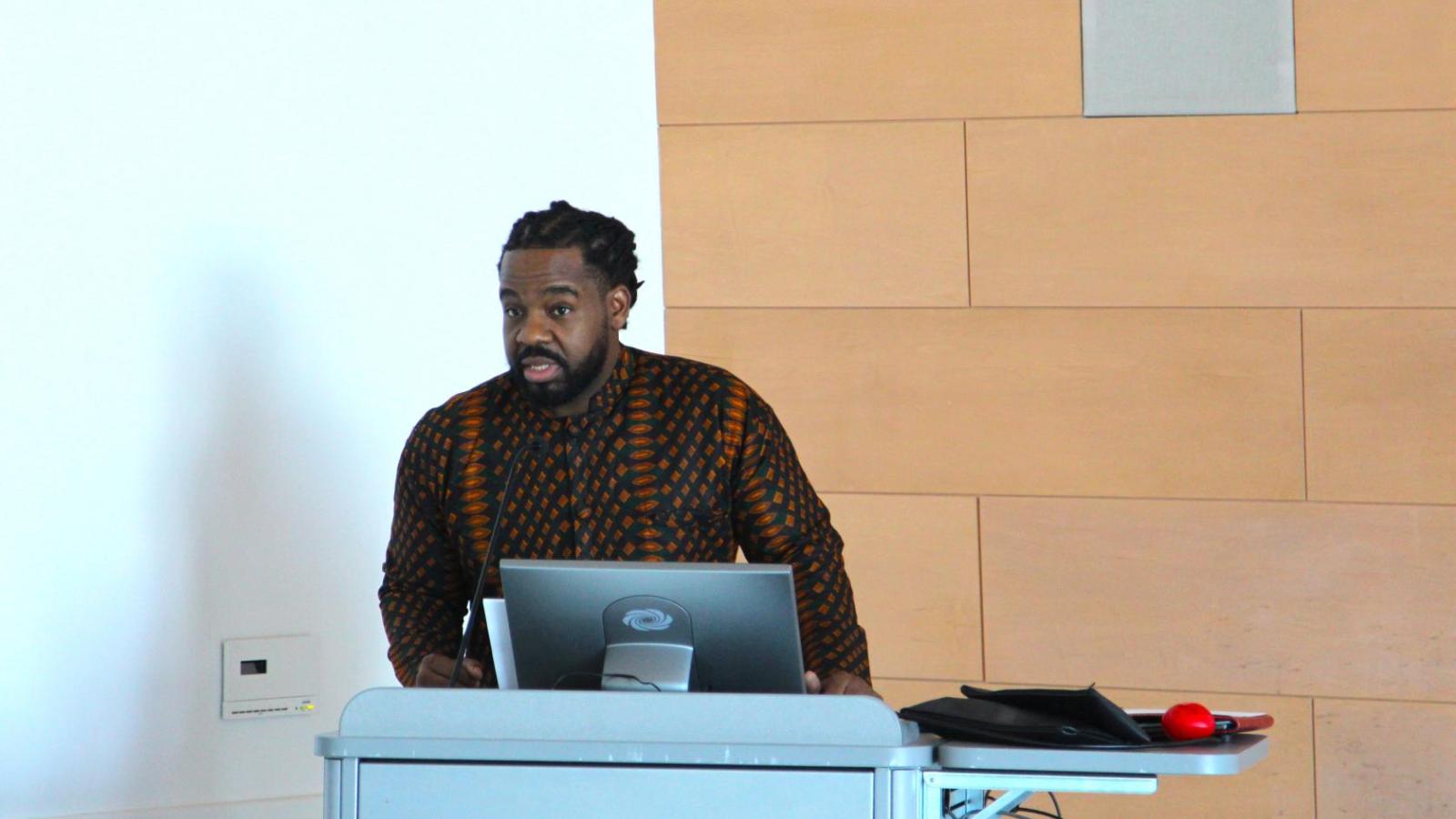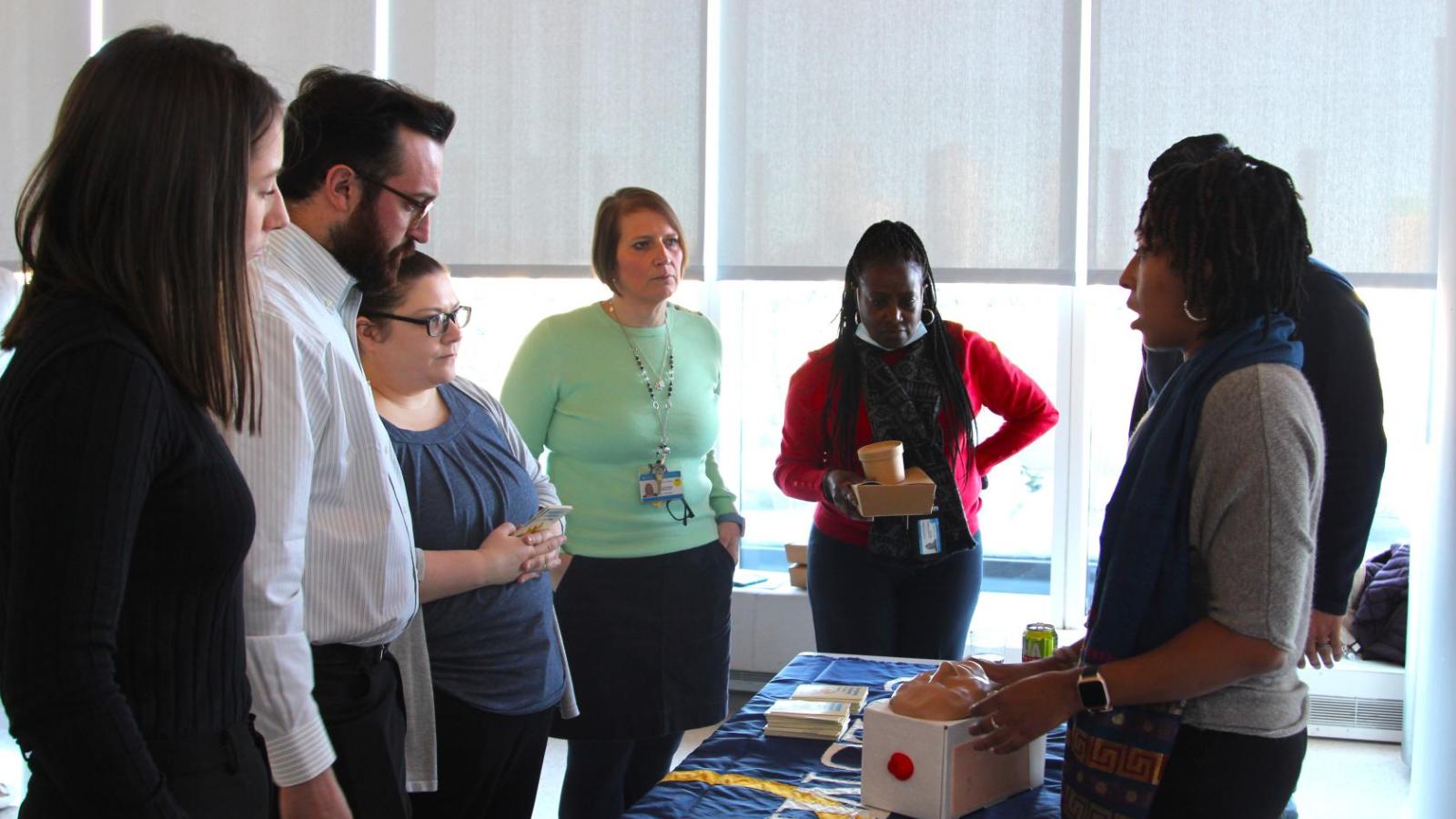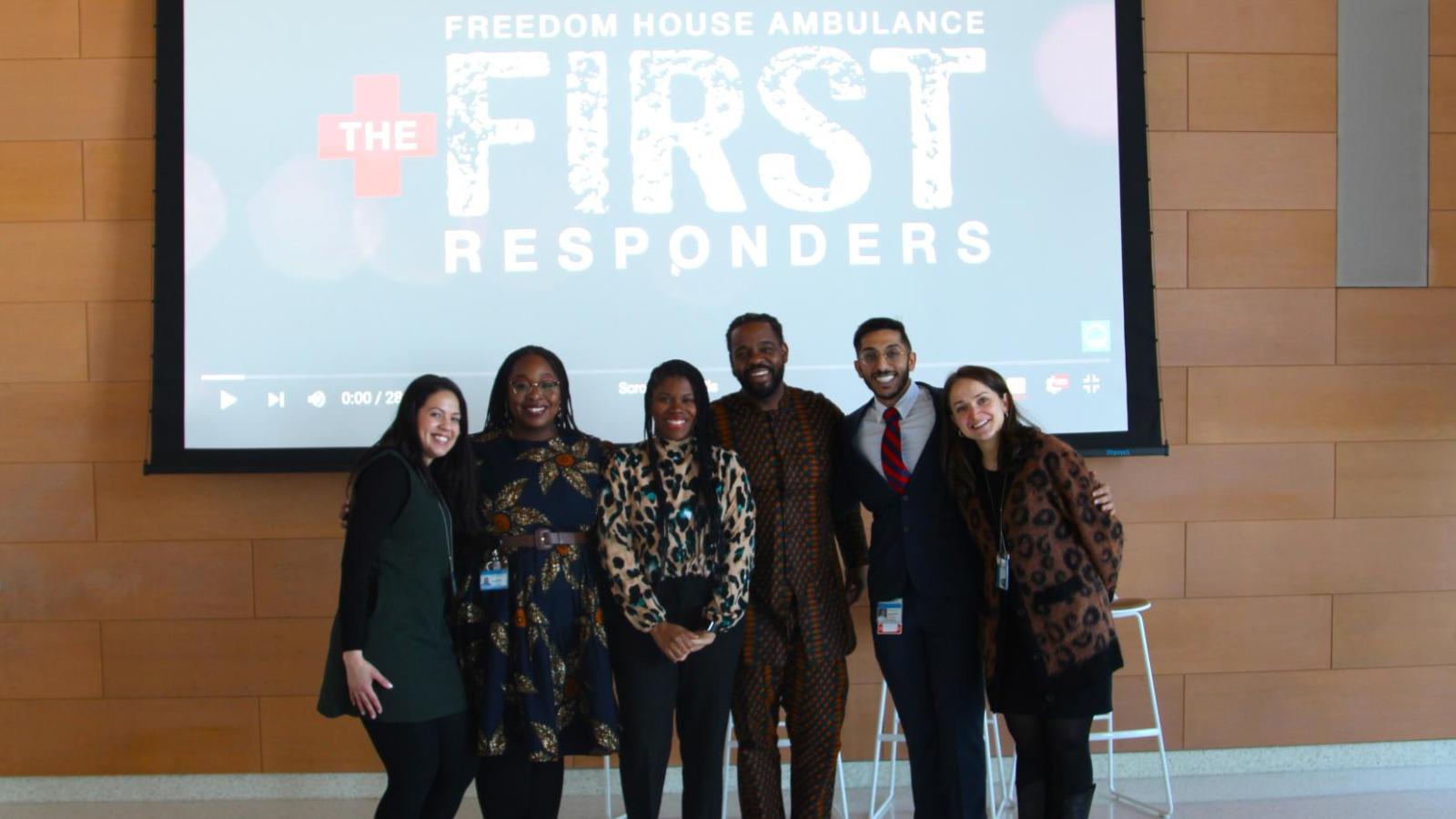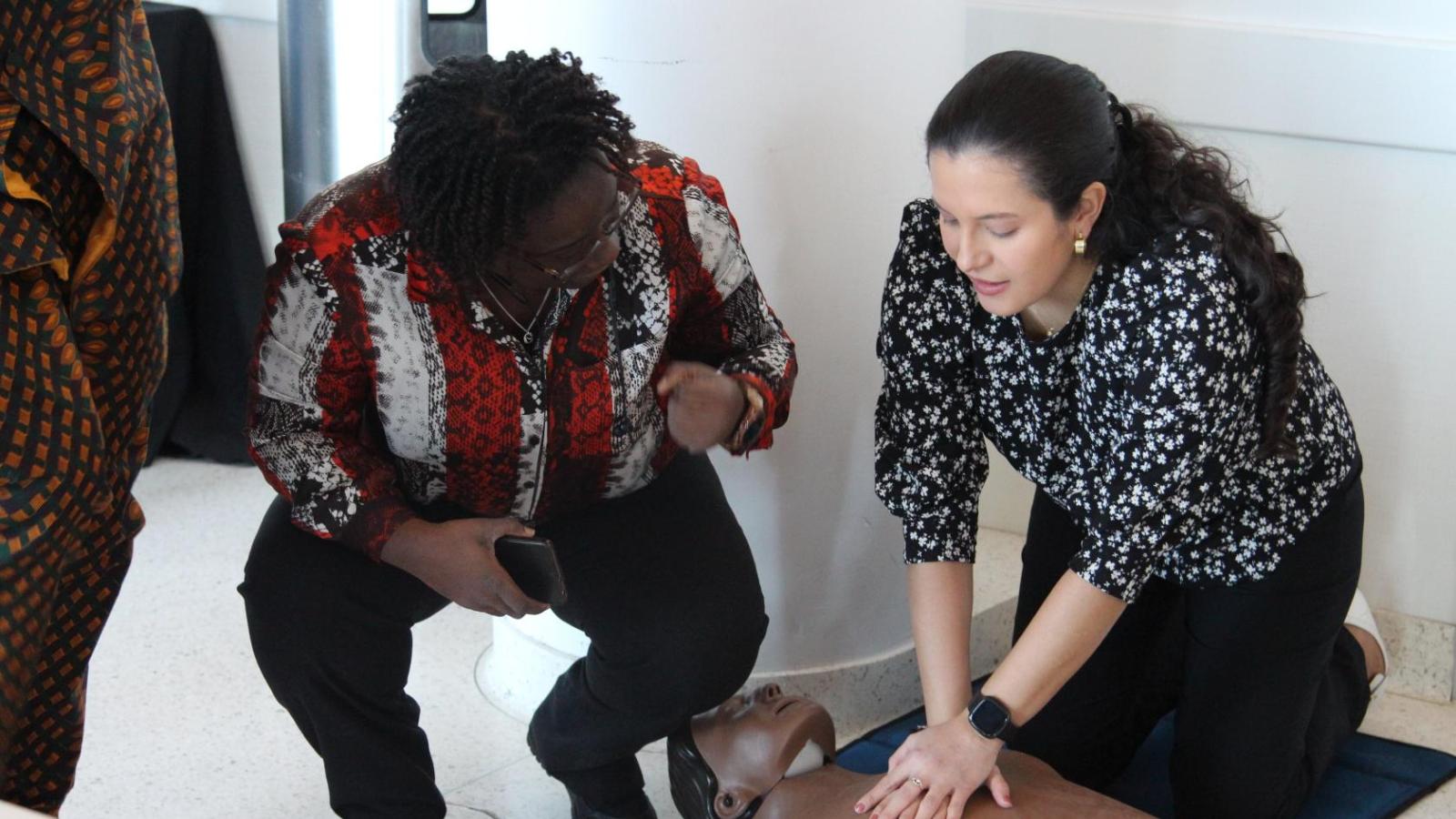
Celebrating Black History: A Conversation with Ashley Graham-Perel, EdD
In honor of Black History Month, we sat down with Ashley Graham-Perel, EdD '21, who became the new director of diversity and cultural affairs and is an alumna of Teacher's College, Columbia University. She discusses what the month means to her, the events the Office of Diversity and Cultural Affairs held throughout the month, and resources for students.
Why do we celebrate Black History Month?
Black history is a part of American history. The commemoration of this month brings attention to the overlooked achievements of Black individuals across history. By allocating a month for Black history, we are given a chance to cultivate awareness, gratitude, and comprehension of the significant influence of Blacks/African Americans throughout various avenues of society, such as health care, science, art, literature, politics, and civil rights. I believe that Black History Month encourages inclusivity, diversity, and a deeper appreciation of our shared history.
What is your favorite thing about Black History Month?
Personally, my favorite thing about Black History Month is acknowledging and celebrating the accomplishments, contributions, and historical significance of Blacks/African Americans. As a nurse historian, I particularly enjoy sharing nursing history and the triumphs of Black nurses in the profession.
What events did the Office of Diversity and Cultural Affairs hold this month?
We held two events this month that highlighted Black medical professionals who were fearless in times of adversity.
At the first event, held on February 12, attendees witnessed and participated in a discussion around the book, "The Black Angels: The Untold Story of the Nurses Who Helped Cure Tuberculosis,” with the author, Maria Smilios, and the last living angel, Virginia Allen. The book chronicles a pre-antibiotic era when treatments for tuberculosis (a widely contagious and deadly disease) were scant. Health care workers feared caring for patients with this disease, resulting in the high death rates of the patient population at that time. Black nurses were summoned to care for these patients when no one else would. To their patients, they were known as the "Black Angels." Ms. Allen, who is over 90 years old, shared what it was like being a nurse providing care to a vulnerable population (tuberculosis patients) during a time of uncertainty and fear. The event was held in collaboration with the New York Black Nurses Association and Greater New York City Black Nurses Association.
The second event, held on February 20, involved the screening of the documentary, “Freedom House Ambulance: The First Responders.” The film tells the story of America’s first paramedics, Freedom House Ambulance. They became trailblazers in providing pre-hospital and CPR care in Pittsburgh, Pennsylvania. After the film, the significance of the film was discussed. Attendees also learned important first responder skills such as how to administer Narcan, "stop the bleed," and perform chest compressions.
Both events were highly successful. There were lots of insightful questions and comments from attendees. We will be providing more programming in the future so stay tuned!
What resources are there to find Black History Month events at Columbia University and in the city?
To learn more about Black History Month programming with Columbia, please monitor your emails. Throughout the university, celebratory events are being held and flyers are emailed to everyone. Columbia's social media channels also feature these events. New York City's rich diversity makes celebrating Black History Month even more enjoyable! Throughout the city, whether it's at libraries (such as the Schomburg Center for Research in Black Culture or a NY Public Library), weekend fairs in Harlem, local restaurant celebrations, or music festivals—the city is illuminated by various Black History Month events!
How can students get involved with Diversity, Equity, Inclusion, and Accessibility (DEIA) initiatives at Columbia University School of Nursing?
The Office of Diversity and Cultural Affairs welcomes all students to join us on our DEIA initiatives! There are several committees within Columbia Nursing that are tasked with addressing DEIA priorities. Also, there is a Diversity Committee on the Student Council Executive Board that students are welcome to join, voice their concerns, and shape the impact of DEIA on Columbia Nursing.
If you are interested in learning more about and getting involved with DEIA initiatives by the Office of Diversity and Cultural Affairs, please reach out to Karinne Ovalles at ko2392@cumc.columbia.edu.


